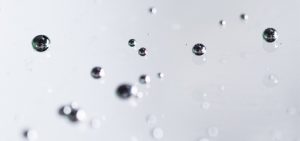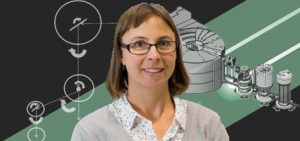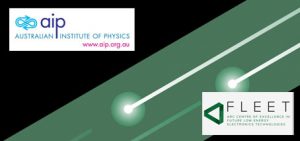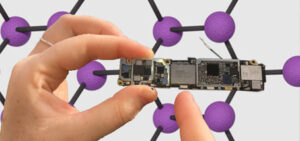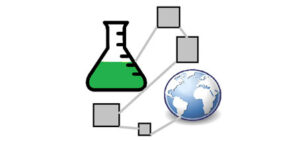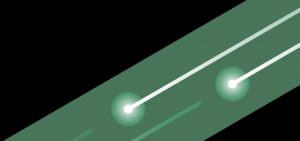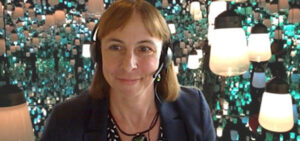Collaborate
Subscription confirmed
 WELCOME TO FLEET NEWS with regular updates from the Australian Research Council Centre of Excellence in Future Low-Energy Electronics Technologies.
WELCOME TO FLEET NEWS with regular updates from the Australian Research Council Centre of Excellence in Future Low-Energy Electronics Technologies.
Each edition of FLEET News brings a selection of research news from around the Centre, a wrap-up of FLEET stories in the media, outreach, and other news regarding FLEET researchers and research.
Catch up on past issues of FLEET News.
Michael Fuhrer
Director, FLEET
ARC Centre of Excellence in Future Low-Energy Electronics Technologies
Following the news
 If you’re on Facebook, Twitter or Linkedin, you can follow our accounts to stay up to date with FLEET news and events. You can also follow news and events at FLEET.org.au.
If you’re on Facebook, Twitter or Linkedin, you can follow our accounts to stay up to date with FLEET news and events. You can also follow news and events at FLEET.org.au.
If a friend or colleague might be interested in our news, send them this link. Or let us know and we’ll invite them.
The challenge
 The big challenge that FLEET is addressing is the increasing energy load of computation, which is currently at least 5% of world electricity use, and doubling each decade.
The big challenge that FLEET is addressing is the increasing energy load of computation, which is currently at least 5% of world electricity use, and doubling each decade.
To date, the amount of energy being burned by computing has been kept in check by a phenomenon known as Moore’s Law, whereby the number of chips in a given area doubles every two years. But we are fast approaching a limit for Moore’s Law.
Current computing is based on semiconductor chips that each burn a tiny, tiny amount of power as they ‘switch’. FLEET will develop switches that will burn almost zero energy, operating at room temperature.
Our research
FLEET will use new concepts for electronic conduction without resistance to create a new generation of ultra-low energy electronics.
We will develop materials in which electricity can flow with minimal resistance and dissipation of heat, and devices in which that electric current can be switched on and off.
FLEET’s three Research Themes are:
- Topological materials (led by Alex Hamilton, UNSW)
- Exciton superfluids (Elena Ostrovskaya, ANU)
- Light-transformed materials (Kris Helmerson, Monash)
And this research is underpinned by two Technology themes:
- Fabrication of atomically thin materials (Xiaolin Wang, University of Wollongong)
- Nanodevice fabrication (Lan Wang, RMIT)
About FLEET

With over $40M investment from the ARC (Australian Research Council) and contributing organisations, FLEET will make a significant global impact in the electronics and energy sectors.
Headquartered at Monash University, and an ARC Centre of Excellence, FLEET has 19 chief investigators at seven Australian institutions, 17 partner investigators at 13 institutions worldwide, and will have over 100 higher-degree research students and postdoctoral fellows.
The highly interdisciplinary team includes some of Australia’s best researchers in atomic physics, condensed matter physics, materials science, electronics, nanofabrication and atomically thin materials.
By building strategic and strong partnerships with Australian and international industry, research institutions and government, FLEET will build capacity for advanced electronics research in Australia and train the workforce for the next generation of electronic materials researchers and future semiconductor industry.
Recent news
The Liquid-metals spin-off company Liquid Metal Plus (LM+) initiated in 2020 with FLEET investigators Kourosh Kalantar-Zadeh (UNSW) and Dr Torben Daeneke (RMIT), together with Dorna Esrafilzadeh (UNSW), was launched in April 2021. Pushing print on flexible touchscreens Climate rewind: turning CO2 back into coal The company has two areas of focus, with the unifying theme being application of liquid-metal technologies …
A team led by FLEET CI Prof Xiaolin Wang (University of Wollongong) has won a linkage project for topological materials based thermoelectricity. Thermoelectricity can directly convert heat to electrical energy or vice-versa. It plays an important role in renewable and sustainable energy by harvesting waste heat, which is widely available in human body, computer chips, sunlight and steel industry. Thermoelectric …
New research supports development of thermoelectric devices to convert waste heat from industry into a viable new energy source Australian industries could benefit from being able to harness the heat by-products from operations Development of advanced materials can sustainably convert waste heat into useful forms of energy to benefit Australia. The work will be undertaken as part of an Australian …
FLEET ensures that our young researchers are prepared for future success – wherever their career takes them. The Centre currently supports 64 higher degree by research (HDR) students and 45 postdoctoral researchers with another 21 research affiliates working on FLEET projects and invited to Centre training, workshops and events. FLEET connects its researchers with internal and international networks, for example, …
A series of talks spotlights leading Australian physics research for the physics community. Co-organised by FLEET and the Australian Institute of Physics, the series throws the spotlight on a different Australian Research Council Centre of Excellence each month, with AIP members and others in the physics community dialing in over zoom to hear about leading Australian research. To date, over …
Topological insulators can reduce transistor switching energy by a factor of four Defeating Boltzman’s tyranny, which puts a lower limit on operating voltage New FLEET research confirms the potential for topological materials to substantially reduce the energy consumed by computing. The collaboration of FLEET researchers from University of Wollongong, Monash University and UNSW have shown in a theoretical study that …
—Who would be interested in my research? Who would benefit from it the most? —How can I pursue high-impact research? —How does research translation work? —If I’ve developed some cool intellectual property, where would I start with industry engagement? —How do I effectively ‘sell’ the value of my research in an award application/grant/job interview? While researchers are typically familiar with …
Melbourne Knowledge Week (26 April-2 May 2021) will be an opportunity for FLEET to engage with the public about the exciting future of computing, and the vital role of energy-efficient electronics in that future. FLEET’s sustainable computing booth will run for the full week at the festival hub, with hands-on science demonstrations linked to materials used in FLEET research, such …
This years’ Science Meets Parliament 2021 transitioned to a mostly virtual event and I must admit, I enjoyed this format thoroughly. The format involved shorter sessions scheduled throughout March, which made it much easier to attend amongst other work and family commitments. This extended program was in conjunction with 2 full days of focused sessions with seminars on topics such …
Inserting ions into, or between, atomically-thin materials can be used to alter their properties in a finely-controlled fashion. For example, graphene’s properties can be fine-tuned by injection of another material (a process known as ‘intercalation’) either underneath the graphene, or between two graphene sheets. (See article.) “Intercalating ions into layered materials increases the spacing and decreases the coupling between the …
A new study, out this week, could pave the way to revolutionary, transparent electronics. Such see-through devices could potentially be integrated in glass, in flexible displays and in smart contact lenses, bringing to life futuristic devices that seem like the product of science fiction. For several decades, researchers have sought a new class of electronics based on semiconducting oxides, whose …
New study indicates holes the solution to operational speed/coherence trade-off, potential scaling up of qubits to a mini-quantum computer. Quantum computers are predicted to be much more powerful and functional than today’s ‘classical’ computers. One way to make a quantum bit is to use the ‘spin’ of an electron, which can point either up or down. To make quantum computers …
Three FLEET PhD students this month featured on popular radio science show Einstein a go-go, on the show’s regular “20 PhDs in 20 minutes” segment. In this format, student and host each get a minute, covering the student’s entire project in just two minutes combined. (Perfect practice for the famous ‘elevator pitch’.) The three FLEET presenters were Alex Nguyen (Monash), Matt …
Or, why we dropped a super-persuasive fact. It’s a much-quoted ‘fact’ that your smartphone uses more electricity than your fridge. And it’s very persuasive, particularly if you work (as we do) in the field of low-energy electronics. The entire field is predicated on the fact that computing/electronics use an unsustainable amount of electricity. And because most people don’t think of …
In 2019, after a remarkable achievement in reaching over 10,000 students, FLEET voluntarily raised its outreach target from 200 students to 2000 students, 50 teachers to 75 teachers and 2000 public members to 5000 public members. And then Covid happened … However, despite the unique challenges that Covid imposed on face-to-face outreach, cancelling public events and banning in-class or in-lab …

